Filter by
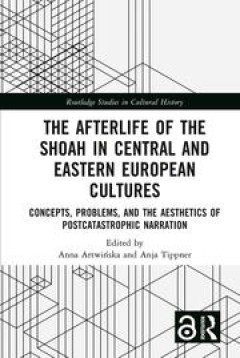
The afterlife of the Shoah in Central and Eastern European cultures : concept…
The Afterlife of the Shoah in Central and Eastern European Cultures is a collection of essays by literary scholars from Germany, the US, and Central Eastern Europe offering insight into the specific ways of representing the Shoah and its aftereffects as well as its entanglement with other catastrophic events in the region. Introducing the conceptual frame of postcatastrophe, the collected es…
- Edition
- -
- ISBN/ISSN
- 9781003050544
- Collation
- xii ; 360p : ill.
- Series Title
- -
- Call Number
- 808.80358405318 THE t

Globalization and Economic Diversification : Policy Challenges for Economies …
This book is available as open access through the Bloomsbury Open Access programme and is available on bloomsburycollections.com. This volume brings together new contributions from renowned academic scholars, from experts on economies in transition and from the United Nations, the European Union, the European Bank for Reconstruction and Development as well as other international agencies. It ai…
- Edition
- -
- ISBN/ISSN
- 9781849665766
- Collation
- 264p : ill
- Series Title
- -
- Call Number
- 330.1260947 GLO g

A grammar of the Eastern European Hasidic Hebrew tale
This volume constitutes the first reference grammar of the Hasidic Hebrew hagiographic tales composed in late nineteenth- and early twentieth-century Eastern Europe. It presents a thorough survey of Hasidic Hebrew orthography, morphology, syntax, and lexis illustrated with extensive examples.
- Edition
- -
- ISBN/ISSN
- 9789004281622
- Collation
- x, 450 p.
- Series Title
- Studies in Semitic languages and linguistics
- Call Number
- 492.47 KAH g
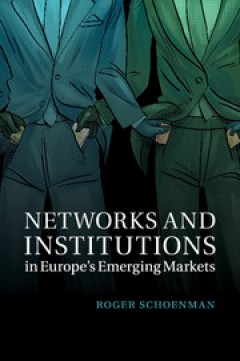
Networks and institutions in Europe's emerging markets
Do ties between political parties and businesses harm or benefit the development of market institutions? The post-communist transition offers an unparalleled opportunity to explore when and how networks linking the polity and the economy support the development of functional institutions. A quantitative and qualitative analysis covering eleven post-socialist countries combined with detailed cas…
- Edition
- -
- ISBN/ISSN
- 9781139381628
- Collation
- xiv, 248 p. ; ill
- Series Title
- -
- Call Number
- 322.30947 SCH n
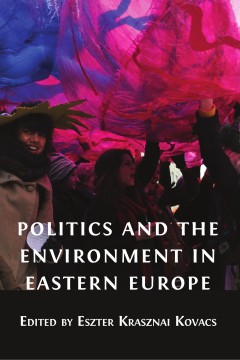
Politics and the environment in Eastern Europe
Europe remains divided between east and west, with differences caused and worsened by uneven economic and political development. Amid these divisions, the environment has become a key battleground. The condition and sustainability of environmental resources are interlinked with systems of governance and power, from local to EU levels. Key challenges in the eastern European region today include …
- Edition
- -
- ISBN/ISSN
- 9781800641341
- Collation
- 342 p. : ill.
- Series Title
- -
- Call Number
- 363.700947 KRA p
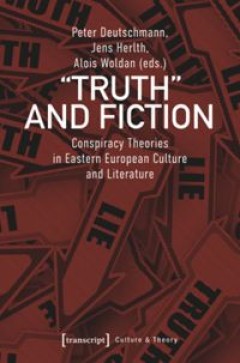
"Truth" and fiction : conspiracy theories in Eastern European culture and lit…
Several of the most prolific and influential conspiracy theories originated in Eastern Europe. The efficacy of conspiracy narratives can be observed in recent developments in Poland or with regard to the wars waged in eastern Ukraine and in former Yugoslavia. This volume analyses the history behind this widespread phenomenon as well as its relationship with representations of the present in Eas…
- Edition
- -
- ISBN/ISSN
- 9783839446508
- Collation
- 381 p.
- Series Title
- Edition Kulturwissenschaft, 193
- Call Number
- 809.93355 TRU t
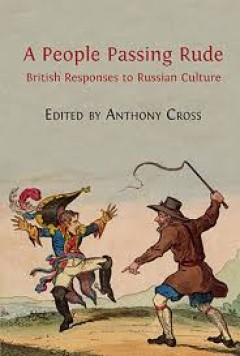
People passing rude: British responses to Russian culture
Described by the sixteenth-century English poet George Turbervile as "a people passing rude, to vices vile inclin’d", the Russians waited some three centuries before their subsequent cultural achievements—in music, art and particularly literature—achieved widespread recognition in Britain. The essays in this stimulating collection attest to the scope and variety of Russia’s influence on…
- Edition
- -
- ISBN/ISSN
- 9781909254121
- Collation
- 1 online resource (xvi, 330 pages) : illustrations (some color)
- Series Title
- -
- Call Number
- 303.48241047
 Computer Science, Information & General Works
Computer Science, Information & General Works  Philosophy & Psychology
Philosophy & Psychology  Religion
Religion  Social Sciences
Social Sciences  Language
Language  Pure Science
Pure Science  Applied Sciences
Applied Sciences  Art & Recreation
Art & Recreation  Literature
Literature  History & Geography
History & Geography